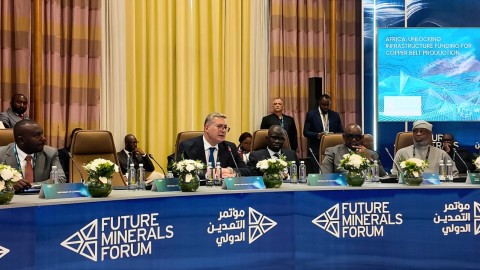Exxon Mobil Corporation expects to start up 16 major oil and natural gas projects during the next three years and is on track to increase daily production to 4.3 million oil-equivalent barrels by 2017, Rex W. Tillerson, chairman and chief executive officer, said today.
“Our long-term capital allocation approach has not changed,” Tillerson said at the company’s annual analyst meeting at the New York Stock Exchange. “We remain committed to our investment discipline and maintaining a reliable and growing dividend. Our integrated model along with our unmatched financial flexibility enable us to execute our business strategy and create shareholder value through the commodity price cycle.”
In 2015, ExxonMobil expects to increase production volumes 2% to 4.1 million oil-equivalent barrels per day, driven by 7% liquids growth. The volume increase is supported by the ramp up of several projects completed in 2014 and the expected start-up of seven new major developments in 2015, including Hadrian South in the Gulf of Mexico, expansion of the Kearl project in Canada, Banyu Urip in Indonesia and deepwater expansion projects at Erha in Nigeria and Kizomba in Angola.
In 2016 and 2017, production ramp up is expected from several projects including Gorgon Jansz in Australia, Hebron in Eastern Canada and expansions of Upper Zakum in United Arab Emirates and Odoptu in Far East Russia.
“ExxonMobil has a deep and diverse portfolio of opportunities around the world and a total resource base of more than 92 billion oil-equivalent barrels,” Tillerson said. “We have unparalleled flexibility to select and invest in only the most attractive development projects.”
ExxonMobil anticipates capital spending of about $34bn in 2015 – 12% less than in 2014 – as it continues to bring major projects online. Annual capital and exploration expenditures are expected to average less than $34bn in 2016 and 2017.
“We are capturing savings in raw materials, service, and construction costs,” Tillerson said. “The lower capital outlook also reflects actions we are taking to improve our set of opportunities while enhancing specific terms and conditions and optimizing development plans.”
ExxonMobil’s Downstream and Chemical businesses remain resilient in the lower commodity price environment and continue to generate solid cash flow, helped by abundant North American crude and natural gas supplies that have led to lower feedstock and energy costs, Tillerson said.
Approximately 75% of ExxonMobil’s refining operations are integrated with chemical and lubricant manufacturing, resulting in economies of scale and greater flexibility to produce higher-value products, including diesel, jet fuel, lubes, and chemicals based on market conditions, Tillerson said.
Source: Oil and Gas Technology












